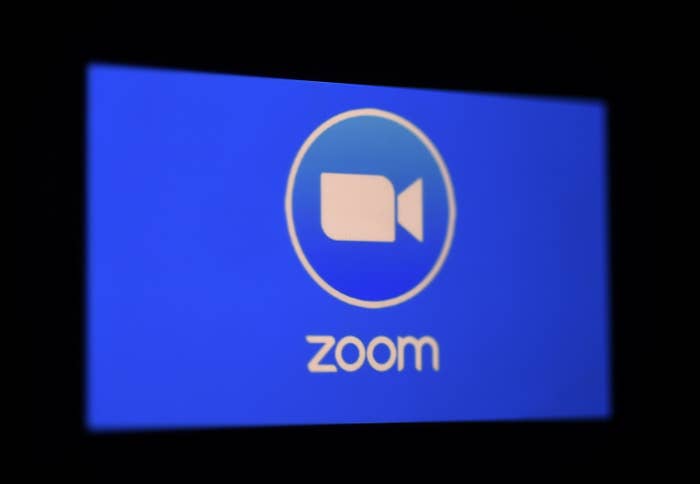
Zoom shut down a series of events meant to discuss what organizers called “censorship” by the company.
The events were planned for Oct. 23 and were organized in response to a previous cancellation by Zoom of a San Francisco State University talk by Leila Khaled, a member of the Popular Front for the Liberation of Palestine, a designated terror organization in the US. Khaled is best known for highjacking two planes, one in 1969 and one in 1970.
Zoom told the Verge at the time that the Sept. 23 talk was in violation of the company’s terms of service. The Verge also reported that the action was in response to pressure by Jewish and Israel lobby groups, such as the Lawfare Project.
Following the Sept. 23 cancellation, a group of academics organized a series of events across the country, as well as in Canada and the UK, which were meant to highlight the issue.
“Campuses across North America are joining in the campaign to resist corporate and university silencing of Palestinian narratives and Palestinian voices,” said the day of action's event description, which was meant to be held on Oct. 23.
The follow-up events did not include Khaled presenting. The event held in part by New York University, which was canceled the day of, included a compilation of her previous statements, according to a blog post on the incident.
“Khaled is undergoing medical treatment and was unable to provide a voice message for the occasion,” the post stated.
“Zoom is committed to supporting the open exchange of ideas and conversations and does not have any policy preventing users from criticizing Zoom,” a spokesperson for the company said. “Zoom does not monitor events and will only take action if we receive reports about possible violations of our Terms of Service, Acceptable Use Policy, and Community Standards. Similar to the event held by San Francisco State University, we determined that this event was in violation of one or more of these policies and let the host know that they were not permitted to use Zoom for this particular event.”
However, Zoom did not respond to questions about which specific policy was violated or whether other events have been shut down by the company.
Adam Saeed, a student at University of Leeds, said he used his personal Zoom account to organize the event. He told BuzzFeed News that the company deleted his event and disabled his account without explanation. He contacted the company’s customer support line, but said he has not yet heard back.
“It cannot be a unilateral decision saying, ‘You violated our terms of use,’ they have to prove that,” he said. “We have to have the right to contest this and present our case.”
Andrew Ross, a professor of social and cultural analysis at NYU who organized the event in conjunction with the American Association of University Professors, called the situation “absurdist.”
“Everyone working in higher education right now depends on Zoom and we cannot be in a position of allowing a corporate, third-party vendor to make these kinds of decisions,” Ross said. “It’s simply unsustainable.”
Ross added that he asked the tech worker who was helping organize the event to check whether the link was active the night before it was set to go live because the event for the University of Hawaii had already been affected. It was fine at that point, but by early afternoon Friday, it had disappeared and there was no option to restore it.
“Universities tend to get into these lucrative contracts with Zoom, and more or less handed over this very fragile power to decide what is acceptable academic speech and what is not,” said Ross. “For those of us who work in the field of supporting and protecting Palestinian rights, it's no surprise to us that Palestinian speech is the first to be cracked down on.”
The NYU event eventually went on with Google Meet, but the effort was intercepted by “politically motivated trolls,” Ross said, and the organizers had to hold it privately and then publish the recording.
Cynthia Franklin, a professor at the University of Hawaii, also saw an event she organized deleted by Zoom, but was unable to find an alternative platform.
“I know that I have free speech rights that are being violated,” she said, “and a private entity is dictating to my public university what I can and cannot say.”
Katherine Franke, a professor at Columbia University who was a panelist at the NYU talk, has experienced events focused on Palestine being canceled in the past and was recently deported from Israel. She sees Zoom’s reaction as an extension of old problems.
“I think it presents a real challenge for universities to think about how to protect academic freedom in this context where we're so dependent upon these internet-based ways of gathering and talking about comfortable and uncomfortable ideas,” she said.
